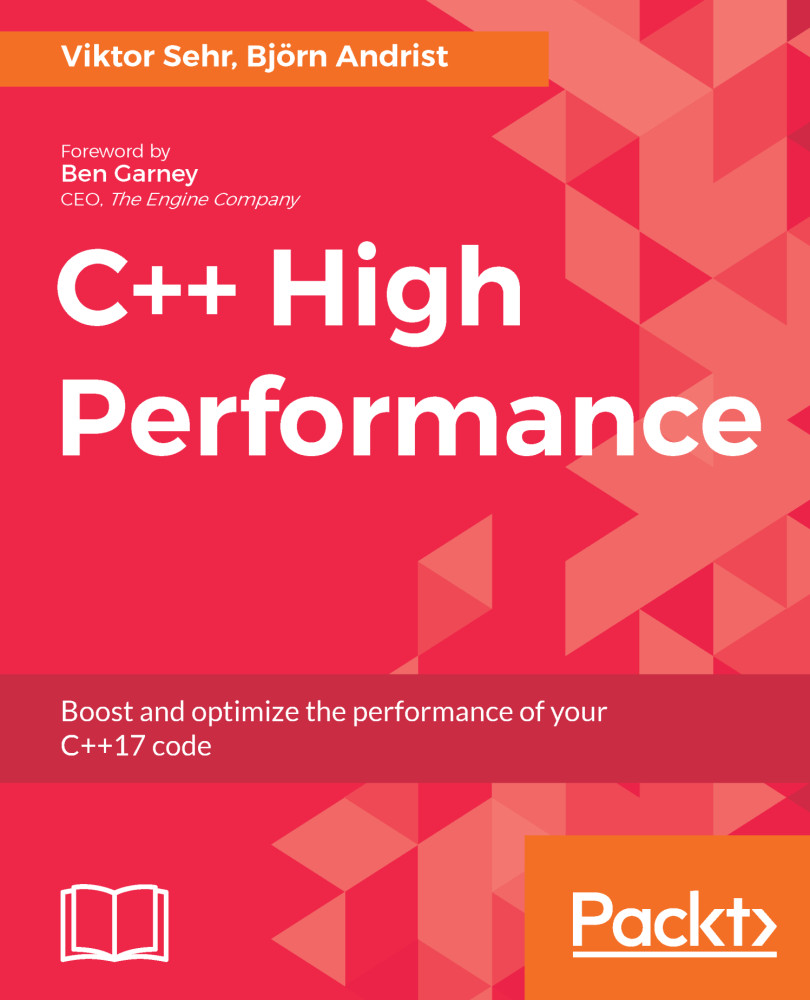In this chapter, we are going to explore how to write concurrent programs in C++ using threads with shared memory. We will look at ways to make concurrent programs correct by writing programs that are free from data races and deadlocks. This chapter will also contain some pieces of advice on how to make concurrent programs run with low latency and high throughput.
Before we go any further, it should be said that this chapter is not a complete introduction to concurrent programming, nor will it cover all the details of concurrency in C++. Instead, this chapter is an introduction to the core building blocks of writing concurrent programs in C++, mixed with some performance-related guidelines. If you haven't been writing concurrent programs before, it is probably wise to go through some introduction texts to cover the theoretical aspects of concurrent programming...


